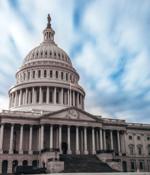Security News

Your profile can be used to present content that appears more relevant based on your possible interests, such as by adapting the order in which content is shown to you, so that it is even easier for you to find content that matches your interests. Content presented to you on this service can be based on your content personalisation profiles, which can reflect your activity on this or other services, possible interests and personal aspects.

A report published today by U.S. Senator Gary Peters, Chairman of the Senate Homeland Security and Governmental Affairs Committee, says law enforcement and regulatory agencies lack insight into ransomware attacks to fight against them effectively. While ransomware incidents have been increasingly hitting organizations across the country, there's still room to improve reporting of both attacks and ransom payments which would provide the federal government with the data and information it needs to deter this severe threat to national security, Senator Peters added.

On Wednesday, proposed US legislation to fund defenses against realistic computer-generated media known as deepfakes was approved by the US Senate and the bill now awaits consideration in the US House of Representatives. Introduced last year by US Senators Catherine Cortez Masto and Jerry Moran, the Identifying Outputs of Generative Adversarial Networks Act aims to promote research to detect and defend against realistic-looking fakery that can be used for purposes of deception, harassment, or misinformation.

The US Senate voted Thursday to bar TikTok from being downloaded onto US government employees' telephones, intensifying US scrutiny of the popular Chinese-owned video app. President Donald Trump, who has locked horns with China on a range of issues including trade and the coronavirus pandemic, has set a deadline of mid-September for TikTok to be acquired by a US firm or be banned in the United States.

An amended version of America's controversial proposed EARN IT Act has been unanimously approved by the Senate Judiciary Committee - a key step in its journey to becoming law. Concerns over the law being used to force tech companies to introduce encryption backdoors led to an amendment [PDF], put forward by Senator Patrick Leahy, that stated online platforms won't face civil or criminal liability if they are unable to break end-to-end encryption in their own services.

A US Senate panel Thursday approved legislation aimed at combatting online child exploitation as civil liberties activists warned the measure could lead to an array of constitutional and privacy problems. The Judiciary Committee voted to approve a revised version of the Earn It Act which would eliminate "Blanket liability protection" for online platforms which fail to protect against child sexual abuse material.

The TRACED Act was a slam dunk in the Senate, where it passed with an overwhelming 97-1 vote.

Foreign government hackers continue to target the personal email accounts of U.S. senators and their aides — and the Senate’s security office has refused to defend them, a lawmaker says. read more

The US Senate defied President Donald Trump by voting Monday to overrule his administration's deal with Chinese telecom firm ZTE and reimpose a ban on high-tech chip sales to the company. Senators...

The US Senate has voted in favor of net neutrality by approving a Congressional Review Act resolution that would undo the Federal Communications Commission’s December decision to dismantle the...